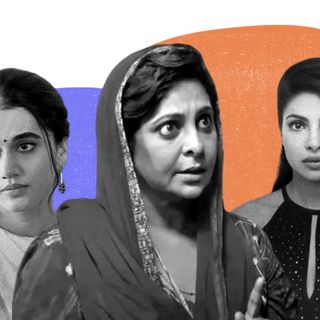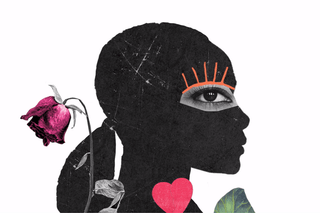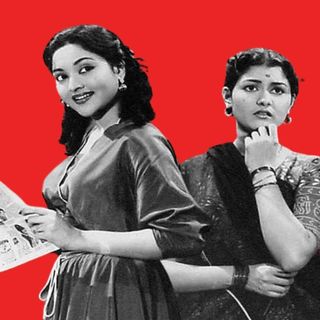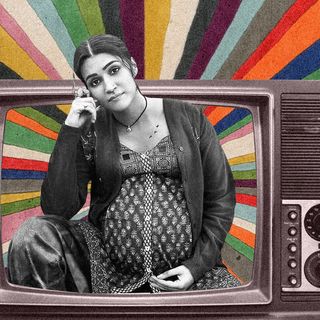
How Modern Society Complicates the Grief of Heartbreak
Breakups are culturally significant, but socially marginalized — leading to suppressed pain and unhealthy coping.

“Love isn’t simply about two people meeting and their inward-looking relationship: it is a construction, a life that is being made, no longer from the perspective of One but from the perspective of Two,” philosopher Alain Badiou said.
Breaking up, then, is to experience an acute devastation that follows having to rip oneself apart from the perspective of Two. It is a profound loss of safety, rending the heart in ways that the world in its current form cannot abide.
Under capitalism, love is called upon to embody everything we value in someone that can’t be bought or sold, and which keeps our faith in the world. When this love is lost, it isn’t just the person who is gone but what they represent: a reprieve from having to survive in a world that wills us to do it all by ourselves.
“There were things in the relationship that I depended on my partner for and his absence meant that I was suddenly picking up the parts I was not used to doing… heartbreak leaves a void,” says M*, 25.
As psychoanalyst Erich Fromm notes, “the principle underlying capitalistic society and the principle of love are incompatible.” In other words, the organization and discipline of our society according to the logic of profit, materialism, and individualism, there is no vocabulary to legitimize the spiritual pain of heartbreak unless it is mediated in the coldness of science and facts. We are prescribed solutions to move on and forward, without having any space for the pain – and the love itself – to go.
Given how loving someone reshapes one’s experience of the world itself, losing the person and the vantage point of moving through the world with them is often profoundly disorienting. Research has shown how breaking up can lead to the same physiological symptoms as bereavement – with an increase in psychological distress and a decline in life quality.
Related on The Swaddle:
Getting Through a Friendship Breakup
And yet, people almost never have the opportunity to openly cite heartbreak as a reason for being unable to function within institutions that fundamentally never account for collectivity, love, and compassion. Many schools and colleges in India don’t even permit relationships, and workplaces expect individuals to function as perfectly pleasant, autonomous individuals stripped of personal context or history – even as the context and history, and the people who constitute them, make the individual who they are. In essence, the paradigm of “niceness” and professionalism that infuses institutions in which we spend the greater part of our lives ends up not only disciplining us, but grinding our broken hearts into dust.
“I had to quit a recently joined job and also forgo a master’s admission to a German university as I was very sure I couldn’t do just about anything during those months.”
Prashanth stopped “functioning” in the aftermath of heartbreak. The idea that individuals must continue on with life is pervasive – as if life has always and only been a solitary pursuit.
Heartbreak, then, is in a double-bind: it isn’t taken seriously as grief, and so it isn’t an emotion that can be readily articulated. Heartbreak is risky: for society to make room for it would be to acknowledge the ubiquity of pain, which in turn would mean lost productivity to keep the wheels turning.
The problem is in the devaluation of love. This may seem contradictory: love is a billion dollar industry, weddings are supposedly made of it, gifts and cards are exchanged over it, and joint accounts are opened as a testament to it. But this is the commerce of love gift wrapped by capitalism: stripped down to its flesh and blood, however, love is arguably what we seek as nourishment, of a kind that isn’t easily bought, sold, or appropriated – making it materially useless in the eyes of institutions. Loving fundamentally requires two or more enjoined in reciprocity – it is partnership, solidarity, and a way of living that rejects the glorification of individualism. Loving someone is valuing them in a way that capitalism, religious and heteronormative prejudices don’t yet have a name for – losing this value, then, is something that isn’t even recognizable.
Moreover, far from the pain of suppressing grief in a society that wilfully remains indifferent to it is also the confusion of trying to place where it comes from – and coming up short for answers. “We conflate the alienation derived from capitalism with the feelings of unworthiness that follow a breakup,” notes an essay. In the aftermath of the breakup, A* spiraled into unhealthy eating as one of many other coping mechanisms for her trauma. It was during the pandemic, and she lived alone – leaving little to no support system for her during the time. “[My] trauma wasn’t validated. I myself was in denial of it: I hated my body and my skin. It didn’t feel like I was in my own body. I felt sick and tarnished. I felt guilt and shame. I blamed myself then.”
Many others try to cope with the pain through immersion in institutional work – this is, in fact, a prescription for the broken-hearted. Workplaces accept the overwork as a welcome change, not caring to investigate the health of the person committing to it. It isn’t nice, comfortable, or pleasant to confess plainly an ache felt deep within in a society committed to the superficial – moreover, it works to the benefit of institutions to perpetuate the kind of invisible emotional warfare that nobody is allowed to speak about.
Related on The Swaddle:
Why It Can Be Harder to Get Over Almost‑Relationships Than Actual Ones
Arguably, the widespread, unspoken social contract to keep the pain of heartbreak a secret serves a disciplining function. Then, there is the imperative to keep non-normative forms of love – and its loss – hidden away. “The question of gender-appropriate behaviour,” says feminist scholar Nivedita Menon in Seeing Like a Feminist, is “inextricably linked to legitimate procreative sexuality,” wherein sexuality is directed towards ensuring the continuation of caste, race and religion. This means that even if we now have more room to play, and even if the rules have changed for how people navigate sex, love, and desire, we continue to be bound by an ultimatum to bind our emotions in a form that the state and society recognize. Breaking up from a relationship that’s outside this bind, then, is akin to screaming into an abyss: there is no acknowledgement for something that was never legitimate.
The secrecy and taboo that underlies the ones that do cross boundaries, then, opens up room for abuse and, subsequently, complicated grief.
A*, a Muslim woman, dated a Hindu man who was abusive and violent. Neither of their families knew about their relationship – this, coupled with the boyfriend’s Islamophobia led to not just grief over a love that was harmful but also what is known as disenfranchised grief – one that someone experiences out of there being no social recognition of the relationship itself. How, then, can something be mourned if it was never really legitimate?
Devika Kapoor, a Mumbai-based therapist, notes that non-marital relationships are in the first place not considered socially legitimate. In the case of taboo relationships – such as interreligious or inter-caste ones – “the loss will not be socially recognized nor will it be considered a loss by society – because it was illegitimate in the first place. Society doesn’t give them the right to grieve,” she notes.
Q was in a non cis-het, intercaste relationship with someone they lived with for three years. The unacknowledged grief from a breakup is an unspoken penalty for not entering into a contract with the state to fulfill the obligations of caste-class continuity. “I was first and foremost a caregiver for my ex. It was hard to break out of those routines – where does the undirected care go?” they say, cutting into the heart of what makes heartbreak so debilitating.
In a way, then, suppressed grief from breakups is a form of violence: it is suffering in a black box where the sounds, sights, and dreams of lost love escape – unseen and unheard by anyone with the capacity to alleviate it.
Many others note how romantic love is meant to fulfill all our emotional needs; capital fulfills the material ones. This leads to a crisis of faith when love inevitably cracks under the weight of the burden of being one of the only things to spiritually nourish someone in an otherwise dreary, hyper-individualistic ethos. “The reduction of life’s legitimate possibility to one plot is the source of romantic love’s terrorizing, coercive, shaming, manipulative, or just diminishing effects – on the imagination as well as on practice,” notes philosopher Lauren Berlant. This can have devastating effects – keeping people in a cycle of complicated grief spiral from having held on to a toxic kind of love, and from letting it go with nowhere to release the pain.
“It affected me physically – my processing of the loss and absence of it all. Particularly when you decide to cut off someone you shared a home with. It means the little bits of muscle memory go lost,” Q adds.
Grief from breaking up, then, is so potent as to become embedded in the flesh – arguably the only place it has to go in the absence of larger support structures and cultural indifference.
“After being dumped by the one you thought you would grow old with, you may feel your guts being sluggishly cut out of you with a butter knife and squeezed through a meat grinder, hear your beau and his voices in your head, and feel your sand papery cheeks dissolving in tears,” notes Berit Brogaard, in her study of romantic love.
This points to a truth that is almost subversive to acknowledge: that breaking up is life-altering, depleting the soul of the nourishment that love provides in a difficult world, and shattering a vision of a future life inextricable from company. To even admit the pain in a culture that denies it, then, is an act of resistance waiting to build up collectively.
A subtle cultural shift is awakening to the notion that interdependence isn’t a sign of weakness – on the contrary, it bolsters the experience of the world and makes living itself feel more complete. Sally Rooney – the millennial author who considers her work to be Marxist – rising to prominence for her depiction of love and heartbreak encapsulates the tension between an individualistic pursuit of self-discovery, versus finding one’s way in the world with love, safety, and trust in another person leading the way forward. It is often the latter that “wins” – which makes losing it that much more of an existential loss. It’s what makes living the mundanities of life after a breakup feel nearly impossible.
Rohitha Naraharisetty is a Senior Associate Editor at The Swaddle. She writes about the intersection of gender, caste, social movements, and pop culture. She can be found on Instagram at @rohitha_97 or on Twitter at @romimacaronii.
Related


Woe Is Me! “My Co‑Worker’s ‘Hustling’ Is Setting Unrealistic Standards for Others. Can I Tell Her to Stop?”
